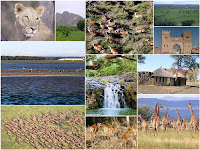Australia Can Do It
"WWF and the tourism industry are very concerned that illegal fishers will raid the Coral Sea reefs - mainly for shark fins for the Asian market," said Richard Leck, WWF's marine policy manager.
"The Coral Sea presents us with a unique opportunity to safeguard one of the world's few remaining pristine marine regions."
The tropical ocean, between Australia and the south-west Pacific, was also under threat from future plans for undersea oil and gas extraction, WWF Australia said. Telegraph.co.uk
WWF's Richard Leck says the Coral Sea reefs are still pristine and need immediate protection.
"It's also got an amazingly robust population of top-end predators - of sharks, tuna, trevally, those kind of fish, and that's very rare in the world today, [where] we're seeing coral reefs declining five times faster than the world's rainforests," he said. ABC News
Queensland, Australia is a favorite for tourists. Millions travel there to witness its magnificent ocean wonders. Millions who quicken the pace too, of the coral's destruction - mainly due to acidification.
There is really only one way to minimise the damage from ocean acidification: limit the rate and extent of carbon emissions into the atmosphere, and quickly, Howard says.
"One of the things that we know about the ocean is that there will be a very large penalty for procrastination. The longer we wait, the harder it will be to actually mitigate the problem."
Charlie Veron believes it is important to remain optimistic but finds this increasingly difficult given the huge cuts in carbon emissions that would be required to save his beloved reef.
"It's no use saying by 2030 we'll do this or we'll do that - by 2030 it will all be too late. That is the problem. So we have to change. And humans are, I believe, very good at change. But there's not an ounce of hope in a world that wants to procrastinate and to say we can't do this or that.
"We're going to have to." The Sydney Morning Herald
The way it is now, come 2030, the World (the 'developed' world) will be emitting even more carbon dioxide in to the atmosphere than they do now. Still, the Australian federal government can do the least it can now: protect the endangered Coral Reef. And better still: ratify the Kyoto Protocol.
Photo from: aasharks.com


